4 Reasons Not to Take a Shower in the Morning, According to Doctors
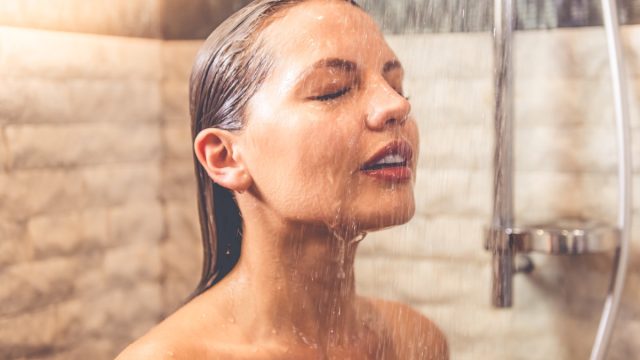
People who take morning showers often tout the benefits of their wake-up routine. For instance, it can give you an effective energy boost, help you out with a good hair day, and leave you less sweaty from all that tossing and turning in bed. But morning showers have their drawbacks, as those in the night shower camp will gladly tell you.
Though the jury seems to be out about which shower time is best, doctors note four main flaws of showering in the morning—and they’re worth considering. Read on to find out whether you should rethink your hygiene routine, depending on your health and habits.
READ THIS NEXT: Doctor Who Hasn’t Showered in Years Thinks Others Should Join Him.
1
Showering in the morning may lead to dirtier sheets at night.
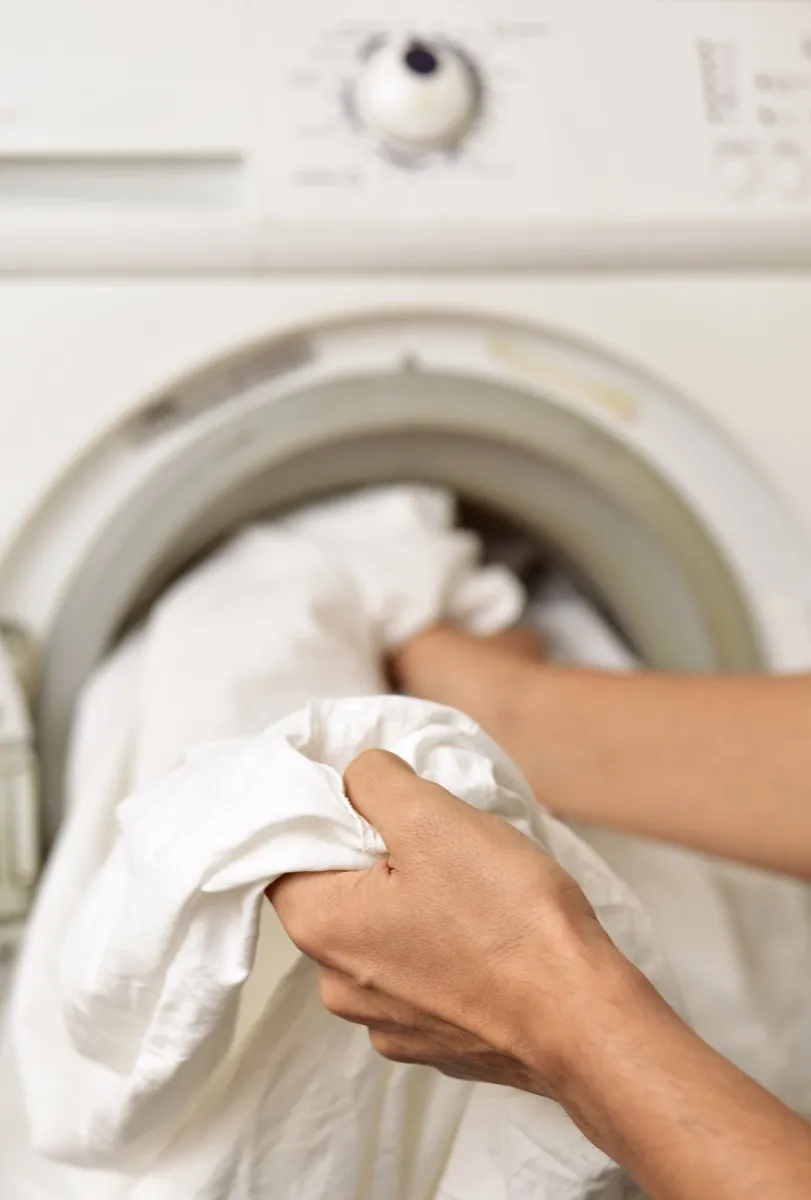
Showering in the morning has one clear drawback, assuming you aren’t also showering at night: You’ll go to bed without washing away the day’s dirt and grime. “It’s true that neglecting to shower at night can leave more dust, bacteria, dead skin, and sweat in your bed,” says Adil Maqbool, MD, a doctor, researcher, and medical writer. “When you spend a full day out and about, your skin accumulates dirt and sweat, and your hair collects dust and other particles. If you go to bed without showering, all of that dirt and sweat will transfer from your body to your sheets, creating an environment that can be conducive to bacteria growth and skin irritation,” he tells Best Life.
That said, if you wash your hair shortly before bedtime, doctors say you should make a point of drying it before your head hits the pillow, since a warm, damp pillow is an ideal environment for the growth of bacteria, mold, fungus, and more.
READ THIS NEXT: This Common Bathroom Habit Is a “Disaster” for Your Teeth, Dentist Warns.
2
Morning showers can trigger some people’s allergies.
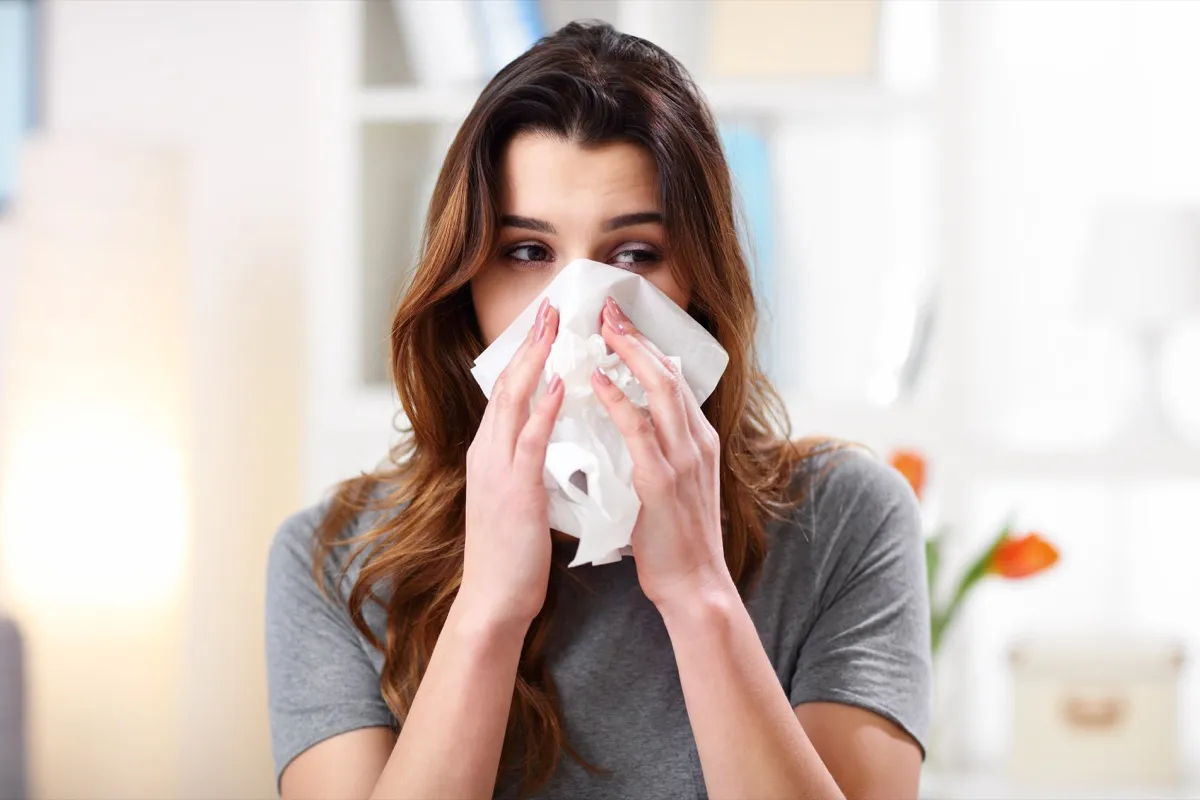
For those with a dust mite allergy, showering in the morning instead of at night may trigger symptoms. That’s because the more skin you shed in your bed, the more dust mites multiply.
“Dust mites are small insects that live in dust and thrive in warm, humid environments. They feed on dead skin cells, and when a person goes to bed without showering, they are providing a food source for these mites,” explains Maqbool. “As the mites multiply, they can trigger allergies and asthma symptoms in sensitive individuals.
Not showering at night can also lead to an accumulation of dirt and sweat on the skin, which can also contribute to the growth of dust mites and increase allergy symptoms, he adds.
3
Showering in the morning won’t help you sleep any better.
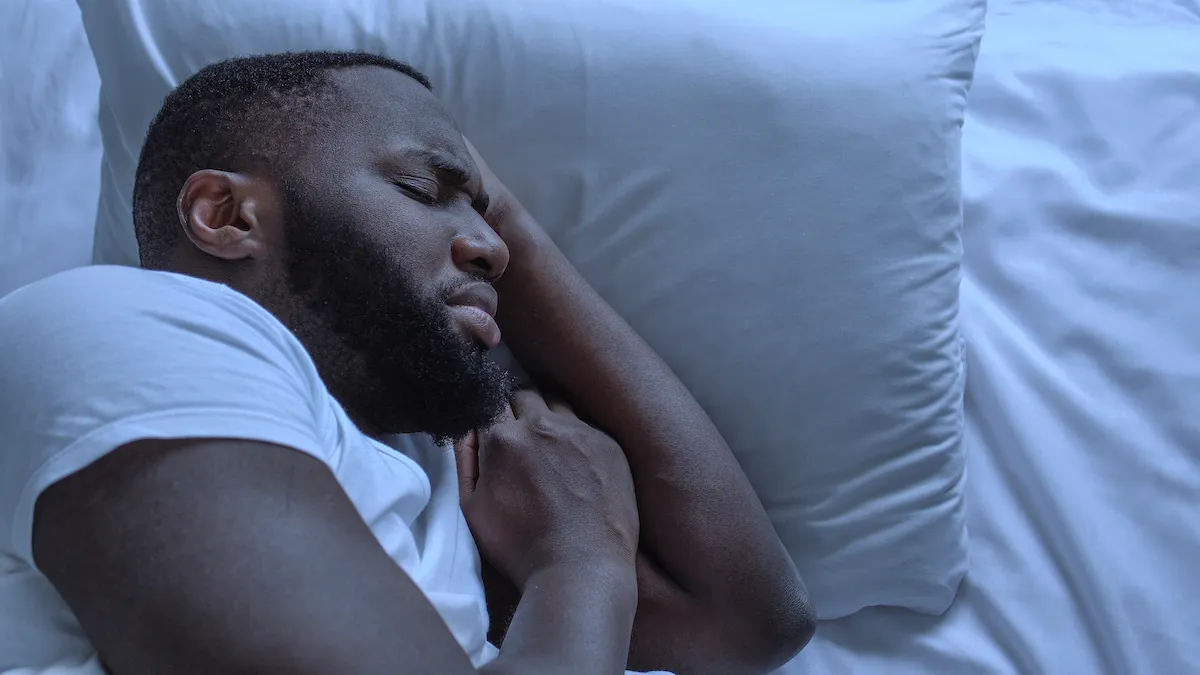
When it’s part of a relaxing nighttime routine, many people report that a shower helps them get a better night’s rest. In fact, the Sleep Foundation reports that a meta-analysis of 17 studies concluded that individuals who take a nightly shower or bath one to two hours before bedtime tend to fall asleep faster and have better sleep quality than those who don’t. The warm temperature—between 104 and 108.5 degrees Fahrenheit—appeared to be a causal factor: Researchers believe that the warmth of the water helps blood flow to the hands and feet, which helps body heat escape more easily.
But that’s not the only reason nighttime showers may help you get a better night’s sleep, according to Maqbool.
“When a person goes to bed without showering, they may feel uncomfortable and dirty, which can make it difficult to fall asleep. Additionally, if a person has a lot of sweat or dirt on their skin, it can cause itching and discomfort, which can disrupt sleep. A shower before bed can help to relax the body and mind, making it easier to fall asleep and have a more restful sleep,” he says.
For more health news sent directly to your inbox, sign up for our daily newsletter.
4
Morning showers may be worse for your skin.
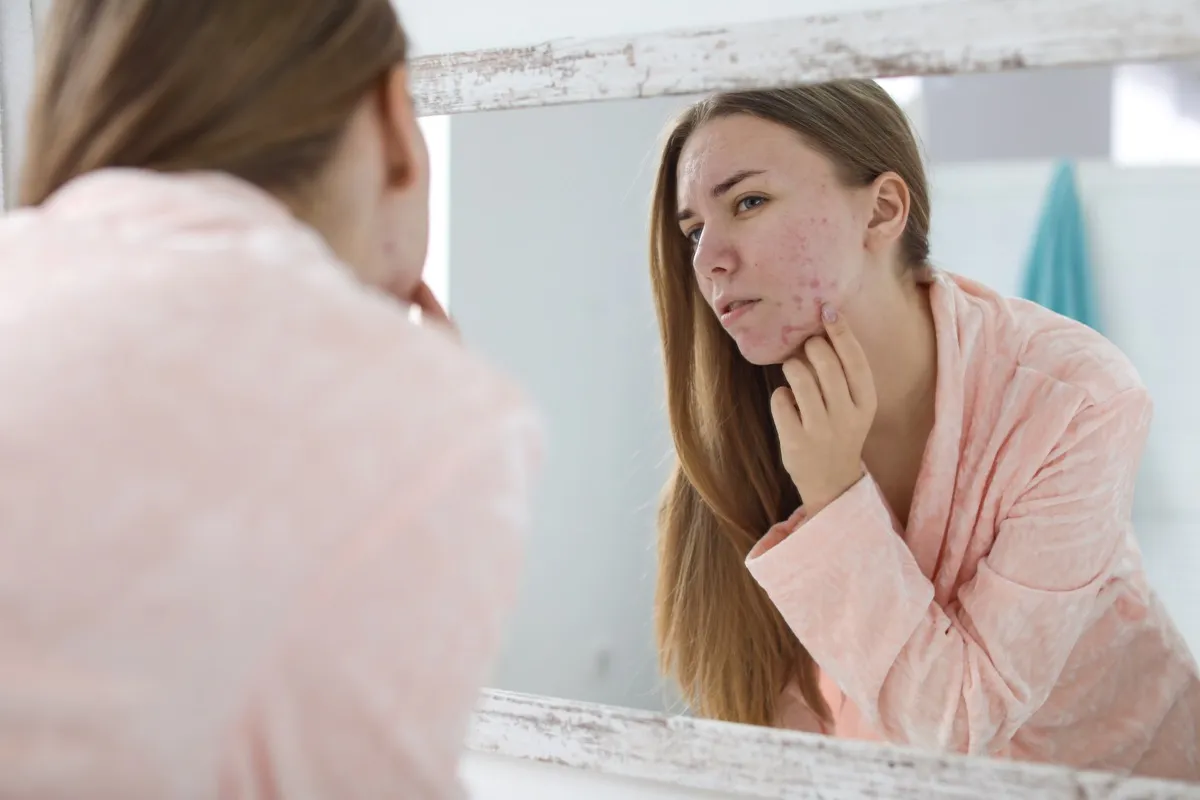
Most people sweat more during the day than at night, meaning it’s important to do a deep skin cleanse at the end of the day—especially if you have acne prone skin.
“Acne is caused by a combination of factors, including the overproduction of oil, clogged pores, and the presence of bacteria,” Maqbool tells Best Life. “When you go to bed without showering, the dirt, sweat, and bacteria on your skin can contribute to clogged pores and the overproduction of oil, which can lead to the development of acne. Additionally, when you sleep in dirty sheets, the bacteria and dirt can transfer back to your skin, further exacerbating the problem. It is recommended to shower at night to help remove dirt, sweat, and bacteria from the skin and prevent acne.”